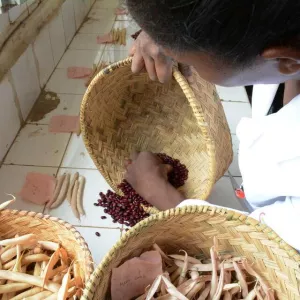For Nairobi’s informal settlements, diverse school lunches make a big difference
Changing the Menu In this case study, researchers examined the meal program offered at Volunteers Foundation Academy, where students typically receive a daily lunch of ugali (maize porridge) with a side of sukuma wiki (kale) or beans. While filling, these meals often lack essential nutrients. Using the World Food Programme’s School Meal Planner (SMP) PLUS software, researchers identified five neglected

For Nairobi’s informal settlements, diverse school lunches make a big difference
Changing the Menu
In this case study, researchers examined the meal program offered at Volunteers Foundation Academy, where students typically receive a daily lunch of ugali (maize porridge) with a side of sukuma wiki (kale) or beans. While filling, these meals often lack essential nutrients. Using the World Food Programme’s School Meal Planner (SMP) PLUS software, researchers identified five neglected and underutilized species (NUS)—African nightshade, spider plant, Bambara groundnut, hyacinth bean, and slender leaf. These climate-resilient crops are rich in vitamins, protein, and minerals, but rarely found on people’s plates.
By incorporating these NUS, the new menus met 30% of children’s daily nutritional needs while reducing meal costs by up to 67%.

